Transformative Justice Infrastructure Fellowship
PolicyLink, the Communities First Infrastructure Alliance, and Race Forward’s Government Alliance on Race and Equity are excited to announce a 2024 Transformative Justice Infrastructure Fellowship for public sector leaders who play strategic roles in embedding equitable approaches to local infrastructure investments.
In its second year, the Transformative Justice Infrastructure Fellowship will support a cohort of 12 infrastructure-related public sector leaders who embody practices of systemic change and transformation in the transportation, water, housing, planning, and environmental sectors. We believe that collectively, as public sector practitioners and racial equity organizations, we have the opportunity to put communities first — to uplift the best community leaders and ideas — and give them the investment needed to turn possibility into reality.
We sought out government practitioners who were leading the way by actively working to advance racial equity and supporting the implementation of transformative infrastructure related projects, programs, and processes. Most are mid-career practitioners who are applying these approaches and proactively addressing historical and structural inequities in their work. They are strong in their own racial equity, justice, and liberation journeys, and are all working to incorporate a racial equity and power analysis into their daily work. Our democracy has systematically incentivized underinvestment and disinvestment in low-wealth and Black, Indigenous, People of Color communities, and we hope to help change this. The path towards healing and justice must start with building power across low-wealth and Black, Indigenous, and People of Color communities first.
The fellows will work together in 2024 to lift up what works, strengthen their own alignment around the equitable implementation of federal infrastructure dollars, and will be provided with holistic support to build capacity and support their ongoing leadership. Through the work of our organizations, we know that across the country, governmental jurisdictions are making a commitment to achieving racial equity, focusing on the power and influence of their own institutions, and working collaboratively in partnership with frontline communities.
The United States is currently experiencing a once-in-a-generation wave of infrastructure investment. A historic surge of funding — including the $1.2 trillion Infrastructure Investment and Jobs Act (IIJA), $437 billion from the climate portion of the Inflation Reduction Act (IRA), and $1.9 trillion in flexible discretionary funding from the American Rescue Plan Act (ARPA) stimulus package — presents an enormous opportunity to embed community-led solutions, justice, and climate priorities in US infrastructure investments. To meet this moment, racial and climate justice advocates across the country are working to ensure the implementation of these funds centers the needs and aspirations of communities and empowers them to direct funding to community-identified and led projects.
This Fellowship is specifically designed to enhance coordination for the equitable Implementation of IIJA and IRA program funds across government and community- based organizations, and will provide opportunities to connect government practitioners to geographically relevant frontline community-led projects and organizations. We believe that local and regional governments have the ability to implement policy change at multiple levels and across multiple sectors to drive larger systemic change.
A critical part of this generation’s work is to build new infrastructure — accessible transportation, clean energy, climate-resilient cities and towns, broadband access, good jobs — that serve all of our communities. This Fellowship is just one of the ways our organizations are working to help guide government leaders at all levels in this undertaking, which includes the recently developed set of Infrastructure Standards, precipitated by the unprecedented influx of government funds via IIJA and IRA.
The Fellowship will be guided by the Communities First Infrastructure Alliance core set of principles, which state that we all commit to:
- Invest in People
- Proactive Collaboration
- Center Community Wisdom
- Honor Self-Determination
- Practice Responsiveness & Accountability
- Bridge Integrative Pathways
- Repair Past Harm
About the Fellows
The selected fellows are mostly mid-career practitioners who are leading with transformative justice models, by actively working to advance racial equity in the implementation of infrastructure-related projects, programs, and processes. These fellows are already strong in their own racial equity, justice, and liberation journey, and are seeking ways to collaborate on new approaches to infrastructure decision-making that center on proactively addressing historical and structural inequities.
The fellows will work together in 2024 to lift up what works, strengthen their own alignment around the equitable implementation of federal, state, and local infrastructure dollars, and will be provided with holistic support to build their capacity and support their ongoing leadership. Our goals include enhancing coordination of the equitable Implementation of IIJA and IRA program funds across government and community-based organizations and providing opportunities to connect government practitioners to geographically relevant frontline community-led projects and organizations. We know that with effective coordination and aligning significant leverage and expansion opportunities emerge, setting the stage for the achievement of infrastructure justice and racial equity in our communities.
Through the work of our organizations, we know that across the country, many governmental jurisdictions are making a commitment to achieving racial equity, focusing on the power and influence of their own institutions, and working collaboratively in partnership with frontline communities, and these fellows are part of that movement.
Meet the Fellows

Alex Hoffman, AICP, CNU-A manages Capital & Long Range Planning and Urban Design for the City of El Paso, Texas.. In this role, he has worked to implement various aspects of the City’s Comprehensive Plan, Strategic Plan and various planning studies to develop and maintain the City’s Capital Plan. Fascinated by the intersection of big data, policy and design, Alex integrates his expertise in these areas to help the City make evidence-based decisions.

Michael Brown is the Director of Planning with the Chicago Metropolitan Agency for Planning (CMAP). His work has focused on local governance and plan implementation to make northeastern Illinois an inclusive and thriving region. He is currently building a program of work to mitigate the disproportionate impacts of industries and climate in marginalized communities. Michael received a master's of urban planning and policy degree from UIC and a degree in architecture from Hampton University (VA). Before joining CMAP, he was a transatlantic research fellow with the Robert Bosch Foundation. While living in Germany, he studied European planning governance and its impact on climate mitigation and adaptation. He is active in the American Planning Association, earning his planning credentials (AICP) and serving in leadership roles in both the National Capital Area and Illinois Chapters. Michael was named a 2022 Notable Leader in Community Development by Crain's Chicago Business Journal.

Romina Castillo, a Mexico City native, has always been fascinated by urban communities and their relationship with the built environment. She is a graduate of the University of Illinois at Chicago with a master's in urban planning and a bachelor’s degree in architecture. For the last 10 years, Romina has collaborated closely with Chicago communities focusing on equitable mobility, coalition-building, and inclusive community engagement practices. In 2022 she joined the Chicago Department of Transportation as its first Director of Outreach and Engagement where she coordinates city-wide engagement forums, manages the SAFE Ambassadors team, and builds partnerships with stakeholders to support equitable and safe mobility efforts across the city.

Cathleen Chavez-Morris works as a Utility Services Manager in the Office of Diversity, Equity and Inclusion (DEI) at Los Angeles Department of Water and Power (LADWP). DEI initiatives under her supervision include LADWP’s culture management plan, the creation of employee resources groups, and expanded community engagement. In addition, she reports directly to LADWP’s all female Board of Commissioners on advancing gender equity initiatives. Cathleen graduated with a bachelor's in geological sciences from California Polytechnic University, Pomona, and a master's in environmental studies from California State University, Fullerton. She also has an executive education certificate from Cornell University in diversity, equity and inclusion (DEI) and will complete a public policy certificate (focused on workplace and public services equity) from Harvard University in 2023. Cathleen is also a 2022 Duke University Water Innovation Leadership Development Fellow. In her spare time, she serves as San Gabriel City Commissioner on DEI emerging issues.

Chris Cheng is trying to live his best life out in beautiful Bend, Oregon. His work as the Active Transportation Liaison for the Oregon Department of Transportation (ODOT) in Central Oregon allows him to pursue his purpose of creating more livable and equitable communities and a better world by reimagining how our roads and highways can be built to focus on the safe and convenient movement of people, not just cars. Although he is not always successful at making walking, biking, and public transit the top priority on all projects, he's hopeful that his efforts are reframing conversations at ODOT and in the community. Outside of work, Chris and his wife, Elisa, can typically be found enjoying the human powered outdoor lifestyle of Central Oregon.

Margo Iñiguez Dawes is a public servant specializing in transportation equity. She is currently the Levy Equity Coordinator at the Seattle Department of Transportation (SDOT), where she works closely with the Move Seattle Levy team to center equity in program prioritization frameworks for the $2 billion, nine-year infrastructure package that funds 30 percent of SDOT’s work. In previous roles at SDOT, Margo partnered with a community stakeholder to co-lead a transformational project to inclusively plan and pilot a mobility on demand solution by and for older adults and people with disabilities (Ride Now). She also served as the New Mobility team’s data and equity strategic advisor in the first years of the program’s work on bike and scooter share and electric and automated mobility. Throughout her tenure at SDOT and in the public sector, Margo has combined her technical and relational skills to advance equitable transportation systems that prioritize the needs and leadership of disinvested communities.
Margo has a master’s degree in city planning and a bachelor’s degree in civil engineering and planning from MIT. Outside of work, she spends her time on the board of the Three Dollar Bill Cinema (Seattle’s queer film nonprofit) and enjoying her season tickets to the Seattle Storm and OL Reign – talk to her about movies and women’s sports any day.

Genesis Gavino currently serves as Chief of Staff and Resilience Officer for the City of Dallas where she leads the implementation of the Resilient Dallas Strategy, digital equity efforts, SmartCities efforts, and the coordination of special projects and other city-wide interdepartmental initiatives. In addition, she has oversight of the central operations and administrative affairs of the Mayor and City Council Office and the City Manager’s Office. Genesis holds a bachelor's in business administration with a focus on management and operations from Washington State University; a master’s in public administration and certificate in nonprofit management from the University of Washington; and is currently pursuing a PhD in public administration and public policy at the University of Texas at Arlington.
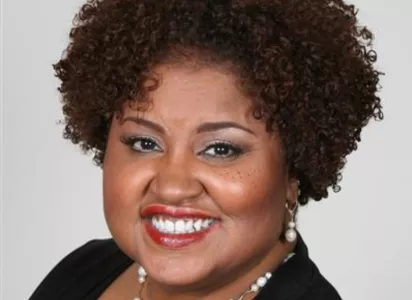
Lisa Marie Glover has more than 25 years of experience in the field of transportation. As the Transportation Division Manager, her staff promotes the livability, health, and economic benefits of a multimodal environment by creating a safe, effective, and connected network of transportation options. Prior to coming to Fort Lauderdale she ran her own consultancy for 14 years which offered a full array of quality services that address critical transportation, land, and organizational issues that impact economic growth and future development. Lisa served as the lead for writing the three-year strategic plan for TRB’s Standing Committee on Equity in Transportation (AME10). She was also selected as a recipient of the inaugural Transit Envision® Sustainability Professional (ENV SP) Scholarship from the National Transit Institute (NTI). Lisa is also a panel member for Transit Cooperative Research Program Project: D-21 Planning for the Future of Intermodal Passenger Facilities: Guide and Decision-Making Framework.

Elizabeth Gordon is the Director of Planning and Programming of the Maryland Department of Transportation Maryland Transit Administration (MDOT MTA). Her core focus areas in this role include setting projects up for success through strategic and thorough engagement of internal and external stakeholders, putting together competitive projects for discretionary funding opportunities, and expanding staff and departmental capacity through a commitment to recruitment, retention, and support of the MDOT MTA team. Prior to this role, Liz worked as a consultant in transit and transportation in Baltimore since receiving her master's in transportation technology and policy at UC Davis in 2012. Her work included multimodal planning, safety, and design projects. Developing and leading public and stakeholder engagement strategies has been a core career focus, with an emphasis on building and maintaining project coalitions and incorporating stakeholder feedback into project decisions in ways that both honor stakeholders’ contributions of time and knowledge and maintain commitment to a project’s core goals and values.

Alex Hoffman, AICP, CNU-A, manages capital and long range planning and urban design as the Deputy Director of Planning for the City of El Paso, Texas. In this role, he has worked to implement various aspects of the City’s comprehensive plan, strategic plan, and various planning studies to develop and maintain the City’s capital plan.
Fascinated by the intersection of big data, policy. and design, Alex integrates his expertise in these areas to help the City make evidence-based decisions.
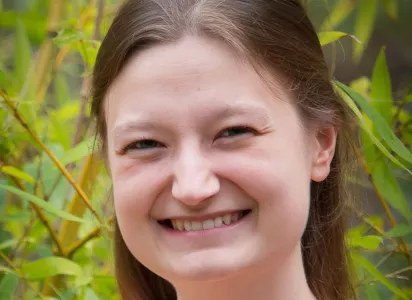
Meagan Jackson lives in Seattle and leads the On-site Sewage System Operation and Maintenance Program at Public Health - Seattle and King County. She has experience with low-tech on-site wastewater treatment system development, field evaluation of OSS, and the day-to-day work of a local health jurisdiction. One of her favorite parts of her job is building partnerships with the many organizations and individuals that the program works with. Outside of work Meagan enjoys hiking, reading, and making delicious meals to share with friends.

Maria Jawad joined the Public Works Board in September of 2021 as a Management Analyst. In this role she is responsible for legislative and policy analysis as well as the coordinator and lead of Washington State’s multi-system, interagency system improvement team, also referred to as SYNC. Maria is an experienced water resource professional with close to 10 years of experience working with Seattle Public Utilities in a variety of strategic planning and system management positions combined with another seven years in applied research and analysis. Research projects with the University of Queensland in Australia and the US Water Research Foundation aimed to better understand how to incentivize integrated water and energy planning practice at local utilities. Maria holds a Master'S in integrated water management from the University of Queensland and International Water Centre and a master's in public administration from Seattle University.
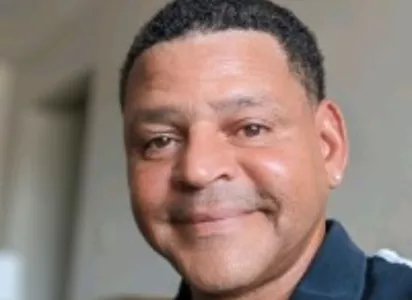
John W. Johnston III is the first Public Works Racial Equity Coordinator in St Paul's History. Originally from Chicago, he moved to Minnesota in 1999, and then to the City of St Paul in 2014. After participating in a racial equity training, John soon joined the racial equity change team and becoming a racial equity trainer, and then eventually the first chair of the public works change team. As a recovering addict for 23 years, with 17 years of continuously being clean, John's life experience facing racism and biases, has deeply contributed to his transformation, passionm and deef focus on equity advocacy,

Kim Lucas serves as the director for the City of Pittsburgh's Department of Mobility & Infrastructure (DOMI). As the director of DOMI, Kim oversees transportation investments and policies that support the physical mobility needed for the people of Pittsburgh to pursue the economic mobility they aspire to. Key initiatives of the department include design and implementation of a “complete network” that serves all modes and encourages more sustainable travel choices; resiliency projects to address issues related to landslides and incidents of flooding; policies and programs to manage emerging transportation including shared services and autonomous vehicles; and strategies to address long-term maintenance and funding concerns. Kim began her career in transportation with her stint as a student bus driver at the University of Virginia, and has worked in the cornerstones of transportation planning: the public and private sectors, advocacy, and research.

Lily Reynolds is an urban planner specializing in infrastructure, transportation systems, and community engagement. Lily was appointed as the Director of Federal Infrastructure Strategy for the City of Philadelphia in 2022. As Director, Lily is leading a cross-departmental team to ensure the Bipartisan Infrastructure Law builds wealth for Philadelphia residents who have long been excluded from opportunity, especially people of color. In her former role as Deputy Director of Complete Streets, Lily oversaw the development of the City’s first Vision Zero Capital Plan, released an updated Vision Zero Action Plan, and led her staff to implement community-driven programs like Neighborhood Slow Zones and Safe Routes Philly. She brings seven years of experience in city planning in the United States and over ten years of community engagement experience in Canada and Spain. Lily received a BA in Geography and Sociology from the University of British Columbia, and a Master of Urban Studies from Simon Fraser University. Lily is a member of the American Planning Association and maintains accreditation with the American Institute of Certified Planners (AICP).

Kelly Shen, a local government financial analyst with the Colorado Department of Local Affairs, works primarily on the Colorado State Revolving Fund – a low-interest loan program for financing water and sewer infrastructure. She performs financial, demographic, and economic analysis and works with communities to identify strategies to fund their water and sewer needs. She believes deeply in lifting up and supporting Black, Indigenous, people of color, and low-wealth communities through public policies and funding. Prior to moving to Colorado, Kelly has worked with communities across North Carolina and Wisconsin to identify and understand inequities in their community – and has primarily focused on the unjust distribution of environmental benefits and harms.
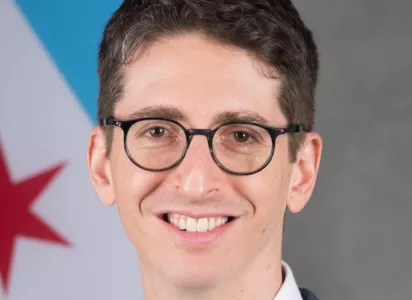
Matt Stern is the Senior Program Manager for the Chicago Recovery Plan at the Chicago Department of Housing, where he directs the implementation of federal, state, and local Covid recovery funding earmarked for housing programs. Under his leadership the department is investing in over a dozen distinct affordable housing strategies, including building new programs from the ground up to address homelessness and building decarbonization. Matt holds a master’s of city and regional planning from the University of North Carolina at Chapel Hill. He has previously worked on community development and tax policy at the Chicago Metropolitan Agency for Planning, led the design and construction of residential solar projects for a renewable energy startup in New England, and advocated for the legalization of illegal “slum” settlements in western India.
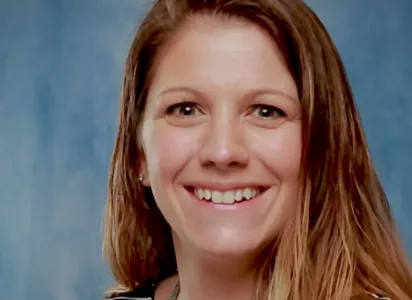
Racquel Vaske serves as the Assistant General Manager of Saint Paul Regional Water Services (SPRWS) in Minnesota. In this role she assists in long range planning, strategy development and implementation affecting water supply, treatment, distribution, and overall delivery of reliable, quality drinking water and services to over 450,000 customers in 14 cities. In her role she also directly oversees the marketing, safety, security, human resources, and Innovations teams. Racquel is a relationship-driven professional with a human resources background who prioritizes providing employees with the structure and resources they need to succeed in their roles. Racquel holds a bachelor’s in public administration and HR as well as a master’s in HR from the University of Minnesota.